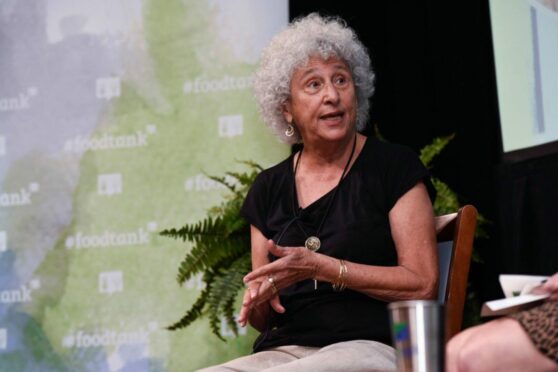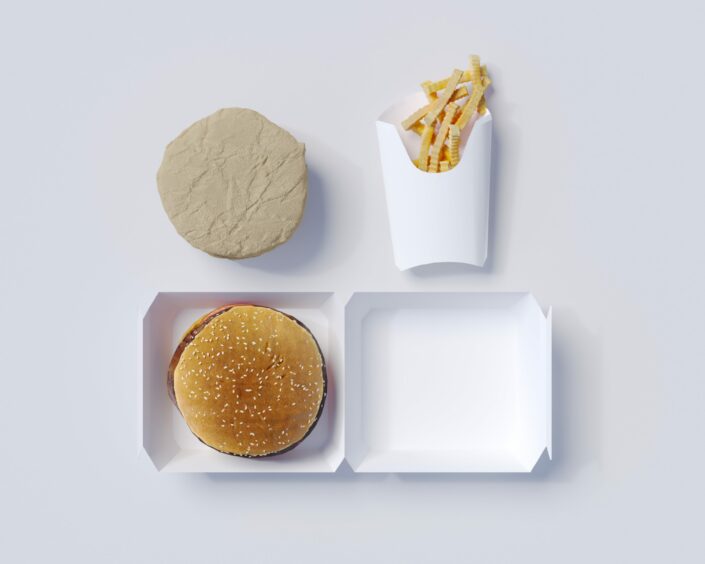
It is a simple question but one without simple answers: “What industry would profit if people were healthier?”
It is a question Professor Marion Nestle asks frequently as she works to untangle the politics of the food we eat while interrogating the food industry’s marketing practices and influence on government policy and public health. The academic and author, labelled the second most powerful foodie in America after Michelle Obama, wants far greater transparency and consumer education around healthy eating.
Her series of best-selling books shines a light on how the billions of pounds streaming through the food industry have led to unhealthy but highly profitable products being driven into our cupboards, fridges and high streets and exposes how advertising designed to “slip below the radar of critical thinking” has not been slowed as powerful lobbyists quash attempts to rein it in.
Nestle, now 86, will be a special guest speaker at Edinburgh Science Festival, starting this week, where she will be presented with the prestigious Edinburgh Medal for her contributions to science and humanity in trying to change the conversation around what people eat and driving important changes in food policy and nutrition science in the US and beyond.
“You can’t really understand why you make the kind of food choices that you do unless you understand the politics around it,” she said. “Politics surrounds every single aspect of food production and consumption, mainly because there’s so much money involved in it.
“Everybody eats several times a day, everybody’s buying food and in any Western country there’s far more food available than anybody needs. That makes the people who are selling it extraordinarily competitive because they’re competing for your food dollar and they’re trying to do that through making foods look healthy or environmentally sustainable, or whatever.
“Everybody eats, and so everything about food is something very immediate and personal. If you’re trying to understand how the oil, drug and other industries work, they’re more removed. People learn things faster if they understand that they’re personally relevant.”
Having switched careers from molecular biology to nutritional science late in her career, Nestle has served in a number of academic and governmental roles in the US related to food policy. Her first book, Food Politics, came as something of a shock to the system when it was released in 2002.
It lifted the lid on the machinations away from public view where, like in the tobacco, drugs and weapons industries, interests and influences meant strategic decisions in the US were driven by economics rather than science or nutrition.
“I thought I was describing the obvious and people were just absolutely shocked by it,” said Nestle, who is professor of nutrition, food studies and public health emerita at New York University. “They never considered that companies treated foods as widgets or any other kind of thing that you are going to sell. But that’s in fact how it works. Once you get that, a lot of what goes on in the food system makes sense in a way it never did before. When you understand food companies are not social services, they’re trying to sell you something, then a lot of the advertising makes sense; the cartoons on the packaging, the labelling, all of these things.
“You need food to live and the food industry produces that and sells it to you at a price that hopefully you can afford. People think of it as a purchaser’s market when, in fact, it’s a seller’s market. All of the things that are really bad for you are very profitable and that’s why they’re pushed so hard. Once you see that, then I think it changes things and it helps people eat more helpfully.”
Nestle believes people are gradually becoming more attuned to seeing beyond the marketing and questioning why the systems are the way they are. The experience of the pandemic, when workers delivering, producing and stocking food were just behind nurses and doctors in the pantheon of everyday heroes, helped spotlight some of the issues.
“The pandemic revealed things about the food system that nobody had ever seen before, the profound inequities,” she said. “Nobody ever paid attention to people who delivered food or clerks in grocery stores and, all of a sudden, these people were at the forefront.
“It was really pretty rough. People saw how those in meat-packing plants were forced to keep working. With the consolidation of the US meat industry and the fact that four companies run basically 85% of meat production over here, when something went wrong with those supply chains there was no meat available. Farmers were destroying animals because they had no place for the meat to go or couldn’t get them slaughtered. Things that were completely invisible became visible.
“That was very interesting and also the idea that food was being destroyed at the same time people were lining up at food banks was shocking. This was on the front pages of newspapers, so you couldn’t miss it.
“These were food system ideas nobody had ever thought about before. It’s certainly made it easier to talk about a capitalist economic system where nobody ever wants to hear the word capitalism mentioned. But now everybody’s talking about it.”
Nestle watches the UK which has had its own food-supply issues due to Brexit and climate conditions on the continent. She has noted with interest efforts to tackle childhood obesity with a proposed ban on junk food advertising before 9pm and the “Sugar Tax” soft drinks levy. “When the UK has done food regulations, it has worked,” she said. “It was one of the places that started on salt early on and that was wildly successful. The food industry doesn’t like any of this stuff. They push back very effectively.”
When it comes to ways forward, Nestle believes it won’t just take one measure at a time but a lot all at once, and that’s where the difficulty lies, particularly in divided political climates.
Societal change is what’s required, she says, to lead people to eat more healthily, including introducing basic food knowledge from childhood and helping people see beyond the advertising.
“When the measures are there they help educate people. If you look at the extent of food industry pushback, again this is a situation where once you understand that this is about business, this isn’t about public health, what the food industry is doing is making sense. From their standpoint, they just want to sell products. They don’t care what the effects of those products are.
“Any attempt to do any of those things in the United States is impossible politically, at this point. We just don’t have any kind of public health orientation. The country is so divided on every possible subject that it’s pretty tough to get anything done.
“We need to do lots and lots of policies all at once if we’re going to do anything to reverse the rising prevalence of obesity. Three-quarters of American adults are overweight and therefore it’s normal and nobody wants to do anything about it.
“And I think it’s very much in the interests of the food industry to keep people confused, because that way they can sell their products.”
The future of food? Pioneers hail advances in vertical farming
When it comes to her own diet, Nestle – whose name bears no relation to the Swiss food giant – follows her own advice and makes informed choices. “I would never advise anybody to do anything that I wouldn’t do,” she said. “Dietary advice is so simple that I like to quote the journalist Michael Pollan, who does it in seven words: ‘Eat food, not too much, mostly plants.’ And that’s really all there is to it.
“Once you define food as real food and not junk food or processed foods, it’s really pretty simple. And that isn’t to say that you should never eat those things. You just have to have them as a small part of your diet. So I don’t find that very difficult to follow.”
Nestle recently released her memoir, Slow Cooked, detailing the path that led her to publish her first book later in life. “I didn’t really get started until I was in my mid-60s,” she said. “I’m not the only person like that, I’m seeing a lot of stories from women particularly who raised children and then went to work and made up for lost time. I was very fortunate in having that opportunity.
“When I was growing up, there weren’t those kind of opportunities. Your life’s work was to get married, have children and do that as quickly as possible.
“It was a much narrower world but the women’s movement opened up doors when I was knocking. In some way it’s much easier for women now and in some it’s much harder because if you have no restrictions on opportunity you have to figure out what you want to do.
“One of the reactions I’ve gotten to my memoir which I find very interesting is the enormous relief that people feel who read it that they don’t have to make those decisions in their 20s, they can experiment, try things and then if it doesn’t work out it’s not the end of the world. That’s hard to see when you’re young.”
Nestle has received numerous awards and honours throughout her career, and the latest will be presented as part of Edinburgh Science Festival. Previous recipients of the annual Edinburgh Medal include theoretical physicist Professor Peter Higgs, Sir David Attenborough and philosopher Mary Midgley.
“It’s very exciting. A very large contingent of my family is coming,” said Nestle. “I was shocked by it, so shocked that I had to ask them ‘why me!’ It feels like an enormous honour.
“I almost don’t think of myself as a scientist any more because it has been such a long time. I describe myself more of a lapsed molecular biologist. Science underpins everything that I do though.”
Edinburgh Science Festival, April 1-16, sciencefestival.co.uk

Enjoy the convenience of having The Sunday Post delivered as a digital ePaper straight to your smartphone, tablet or computer.
Subscribe for only £5.49 a month and enjoy all the benefits of the printed paper as a digital replica.
Subscribe © Shutterstock / 3DAKHMED
© Shutterstock / 3DAKHMED